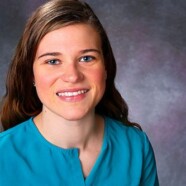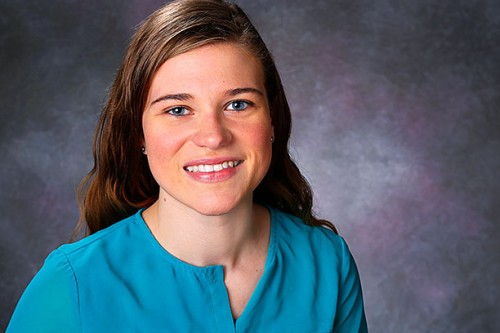Walters ’14 Receives Fulbright Grant to Study Organic Farming in Indonesia
Martha Walters ’14, of North Grafton, Mass., has received a Fulbright research grant for the 2014-15 academic year to study organic farming trends and influences in Indonesia. This will be the third consecutive year that Walters will travel to Indonesia, following two years conducting summer research in Bali.
A double major in anthropology and environmental studies, Walters aims to see what themes in international development emerge from studying organic farming in Bali and West Sumatra, especially in relation to women’s roles
“I argue that even though the trend of ‘going organic’ derives in large part from globalization and the spread of neoliberalism, Indonesia’s organic food scene is not merely a case of supply and demand: it has also developed in ways particular to Indonesia, and I believe women have played a prominent role in its development,” Walters wrote in her statement of grant purpose.
For the past two summers, Walters has traveled to Bali with Susan Rodgers, the W. Arthur Garrity Sr. Professor in Human Nature, Ethics, and Society and professor of anthropology, as part of the Mellon Summer Research Program. In 2012, Walters and two other students accompanied Rodgers to study the commercialization of intricate Southeast Asian textiles called ikat. Walters studied natural dyes used to color ikat. She took a particular interest in how non-governmental organizations empowered women through reviving traditional textile dyeing and weaving. The research culminated in an exhibit titled “Transnational Ikat: An Asian Textile on the Move” in the Cantor Art Gallery in spring 2013. In 2013, she returned to Bali to study organic farms.
Walters is currently researching the complex history of international development and organic farms in Bali as part of her senior year honors thesis, which also includes research she conducted in spring 2013 on food justice in Worcester. Rodgers, who was named the 2013 Massachusetts Professor of the Year by the Carnegie Foundation for the Advancement of Teaching and the Council for the Advancement and Support of Education, is serving as her advisor.
After graduation, Walters hopes to work in environmental policy or with an environmental nongovernmental organization. She then plans to pursue either a joint degree in anthropology and environmental studies or a degree in environmental science and policy.
At Holy Cross, Walters is an intern at the Donelan Office of Community-Based Learning and research assistant for the department of sociology and anthropology. This past January she was a leader in the Non-Profit Careers Conference. From May 2011 to May 2013, she held a community work-study position at a greenhouse on campus for the Regional Environmental Council’s food justice program in which she grew seedlings that were distributed to organic farms and community gardens throughout Worcester. She is currently an intern for the same program at the organization.
Each year approximately 1,900 U.S. college students are awarded grants through the Fulbright U.S. Student Program. The Fulbright Program, the U.S. government’s flagship program in international educational exchange, awards grants to U.S. citizens and nationals of other countries for a variety of educational activities, primarily university lecturing, advanced research, graduate study and teaching in elementary and secondary schools. Since the program’s inception in 1946, more than 300,000 participants — selected on the basis of academic or professional achievement, as well as demonstrated leadership potential — have had the opportunity to observe each other’s political, economic and cultural institutions. The program operates in more than 155 countries worldwide.
(source: Nikolas Markantonatos /news.holycross.edu)


